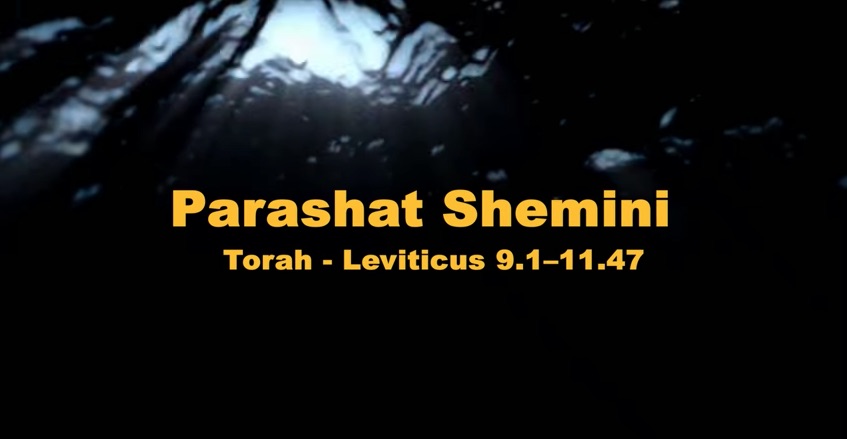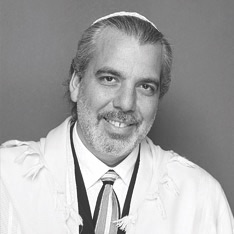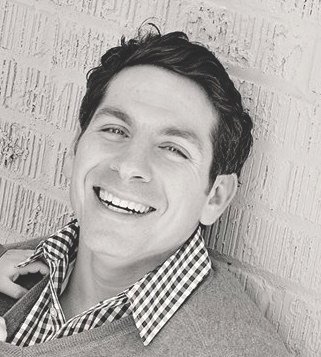 Screenshot from YouTube.
Screenshot from YouTube. LEVITICUS 10:8-11, SHEMINI
And the Lord spoke to Aaron, saying: Drink no wine or other intoxicant, you or your sons, when you enter the Tent of Meeting, that you may not die. This is a law for all time throughout the ages, for you must distinguish between the sacred and the profane, and between the unclean and the clean; and you must teach the Israelites all the laws which the Lord has imparted to them through Moses.
Rabbi Dvora Weisberg
Hebrew Union College-Jewish Institute of Religion

Because this instruction follows directly after the death of Nadav and Avihu, whose offering of “strange fire” led to their death, some commentators read it as an indication that the two were intoxicated when they brought the inappropriate offering. But I wonder if the prohibition against drinking on the job might instead reflect a realization of the stress experienced by the priest in his leadership role, and the temptation he might feel to self-medicate.
Consider the role assigned to the priest in Leviticus. He must distinguish between “sacred and profane, unclean and clean.” His work involves endless judgments about the status of objects, animals and fellow human beings. He must declare people ritually impure, sometimes banishing them from the community for a period of time. The priest’s work brings him face-to-face with death and suffering, with failure and disease, each of which he must name and proscribe. Such work is draining and emotionally challenging. Would it be surprising if a priest sought to forget what he saw at work, or steeled himself against the pain by arriving at the sanctuary slightly buzzed?
The Torah does not require that the priest abstain completely from alcohol. It does insist that he be fully present when he enters the Tent of Meeting. When we encounter the Divine Presence, we must be fully present. Extending that idea, we should strive to encounter human beings, reflections of the Divine, in a state of awareness and attentiveness. Only then can we recognize what is sacred.
Rabbi Michael Barclay
Temple Ner Simcha

Whereas many traditions emphasize faith, Judaism focuses on behavior, on actions that lead to understanding. Not just words. Here, drinking is forbidden in the Tent in order to distinguish between sacred and profane, clean and unclean.
Boundaries. Distinctions. For Jews, not for others. What is unclean for us may be fine for others, but we must act within Torah guidelines to understand deeper the differences between what is for Jews, and what is not.
Everything is holy, but not everything is Jewish. There may be holiness in the Catholic rituals of Communion, in the ecstatic practices of the Ayahuascero with his tribe, or in the physical sacrifice of the Lakota Sundance ceremony; but these are not our way. Our pathway is specific, our boundaries clear. This text teaches us to stay true to our instructed practices. And if we are clear in our “Jewish path,” then maybe we can truly appreciate the beauty of others.
Think of it this way: Every spiritual path is like a different color. Judaism is blue, Catholicism is purple, Islam is red, Shamanism is green, and so on. All are sacred, but if we just casually mix them all together, we get a murky, ugly brownish gray. But when we are true to our paths and respect others, we create a rainbow filled with the colors of God.
Let’s be true to living Jewishly through the Torah’s instructions, and in so doing be part of creating a rainbow in God’s exquisite painting of life.
Rabbi Cheryl Peretz
Ziegler School of Rabbinic Studies

We Jews regularly sanctify Shabbat and holidays with wine. Thus, commentators are quick to point out that this passage is not meant as an absolute wine prohibition, but as a warning against drinking such that it perverts one’s ability to make the distinctions to achieve holiness.
We tend to think of the differences between sacred and profane, (ritual) purity and (ritual) impurity (better translations of ‘clean’ and ‘unclean’) as dichotomous realms, raising the goal to rid ourselves of the everyday as the anti-sacred. In reality, however, they are not polar opposites, nor are they of different substance. There is no magic that makes something of and for God.
In Hebrew, the word for between is bein, from the same Hebrew root which forms the forms the word binah, the wisdom of discernment. Human development depends on making Havdalah, a separation, using clear awareness and distinction to recognize that which is sacred and that which is not.
So, we look at two similar things and acknowledge that, despite their similarity, they are intended to be differentiated and held apart. As was taught by our rabbis, “If there is no daat (discriminating intelligence), how can there be Havdalah?” (Talmud Yerushalmi)
That which is holy, set apart for God, is distinguished in mind, word and deed. So, too, is it intrinsically bound in the ordinary, the everyday. It is we who transform the everyday into the service of God through words, through deeds/ritual, and through intentional setting aside and separating.
Rabbi Aryeh Markman
Aish LA

To live in reality, without illusions — is it something we want or do we avoid it? The next leaders after Moses and his brother, Aaron, were to be two sons of Aaron, Nadav and Avihu. They achieved spiritual greatness on a level we can’t imagine. Yet they blinked at the moment of truth like an astronaut on a spacewalk fatally miscalculating his oxygen reserves.
Nine Torah portions earlier, Nadav and Avihu incurred the death penalty when at the height of a high-stakes experience, an unadulterated vision of God, they did not treat it with the proper reverence. Six months later, our portion, that death sentence was carried out when they drank wine and subsequently performed a self-inspired service in the Tent of Meeting/Tabernacle at a pivotal public ceremony.
The Torah restores their breaches by commanding Aaron’s remaining sons to avoid wine, or risk their lives, while working in the Tabernacle. Additionally, no person shall deduce Jewish law for public use while even slightly inebriated. We are taught two areas where we need to be in absolute reality: our work and making life decisions for others.
The Talmud delineates three characteristics that define a person: how they handle their drink, money and anger. Drinking is a measure of one’s self-discipline. The Torah is signaling to us that mindset matters. There are many people who are always “on” with total focus and others whose lives are nonstop frivolity. We must find a balance. The choice is ours, as are the consequences.
Rabbi Noam Raucher
Pasadena Jewish Temple and Center

In a few chapters this verse can be re-read to foreshadow the death of Aaron’s two sons, Nadav and Avihu. Considered punishment for doing exactly as God forbids: wanton recklessness with sacred responsibilities. I’m not suggesting that the punishment fits the crime. But the Torah is clear that powerful people should be careful and guard themselves against intoxicants. The anxiety behind the command is tangible: Will these leaders hold the same high regard that others have for them and/or their office? How can we trust these leaders to take our requests seriously when they can’t even do that with their own responsibilities? How are these authorities supposed to distinguish between the sacred and profane when they don’t even know the difference within themselves?
While the Torah explicitly forbids a liquid drug in this act, it’s worthwhile to consider what other things might intoxicate those of great power. Perhaps it’s domination, wealth or fame. Maybe it’s just the pursuit of more power. We would do well to hold our leaders to a higher standard of behavior. A standard that guards against intoxicating the very office they hold during the pursuit of something other than the greater good. It should be clear that the only buzz coming from their offices should be about the hard work our leaders do to make the world a better place.





















 More news and opinions than at a Shabbat dinner, right in your inbox.
More news and opinions than at a Shabbat dinner, right in your inbox.